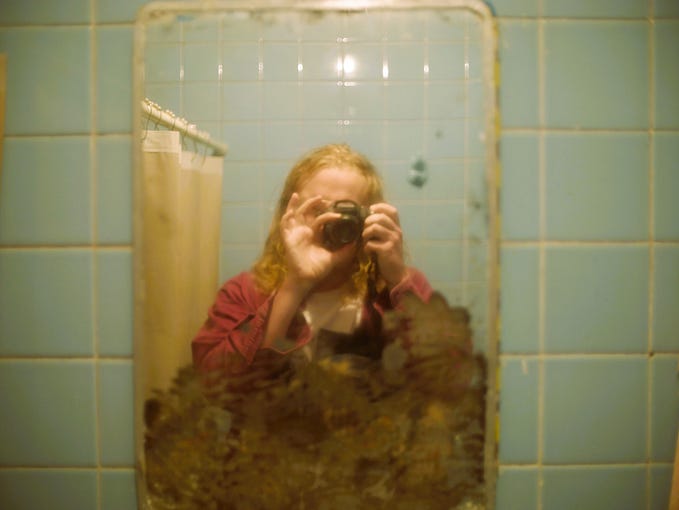Analects of Confucius Book 3: new English Translation

Read this new English translation of the Analects of Confucius Book 3 to learn more about the teachings of China’s most famous philosopher. Its main themes include ritual, music, and leadership.
Chapter 1
孔子謂季氏,「八佾舞於庭,是可忍也,孰不可忍也?」
When he heard that the head of the Ji Family used eight rows of dancers to perform in the ceremonies at his ancestral temple, Confucius commented: “If he is capable of that, what isn’t he capable of?”
Chapter 2
三家者以雍徹。子曰:「『相維辟公,天子穆穆』,奚取於三家之堂?」
When the Three Families had the Yong ode performed while the ceremonial vessels were being removed at the end of their ancestral sacrifices, Confucius said: “‘The lords are in attendance, the son of heaven sits solemnly on his throne.’ How can such words be used in the halls of the Three Families?”
Chapter 3
子曰:「人而不仁,如禮何?人而不仁,如樂何?」
Confucius said: “If someone has no goodness, what can they have to do with ritual? If someone has no goodness, what can they have to do with music?”
Chapter 4
林放問禮之本。子曰:「大哉問!禮,與其奢也,寧儉;喪,與其易也,寧戚。」
Lin Fang asked: “What is the essence of ritual?” Confucius said: “That’s a big question! For festive ceremonies, simplicity is better than extravagance; for funerals, genuine grief is better than excessive formality.”
Chapter 5
子曰:「夷狄之有君,不如諸夏之亡也。」
Confucius said: “Even the Yi and Di tribes that have chieftains can’t match the various states in our land that don’t have rulers.”
Chapter 6
季氏旅於泰山,子謂冉有曰:「女弗能救與?」對曰:「不能。」子曰:「嗚呼!曾謂泰山不如林放乎?」
The Ji Family was setting off to carry out a sacrifice on Mount Tai. Confucius said to Ran Qiu: “Can you not stop this?” Ran Qiu replied: “I cannot.” Confucius said: “This is outrageous! Can it really be true that the spirit of Mount Tai has even less knowledge of ritual than Lin Fang?”
Chapter 7
子曰:「君子無所爭,必也射乎!揖讓而升,下而飲。其爭也君子。」
Confucius said: “A leader does not engage in competition. But if you can’t avoid it, you should practice archery. You bow and exchange courtesies with your opponent before entering the range and enjoy drinks with him after leaving it. Even when engaged in competition, you remain a leader.”
Chapter 8
子夏問曰:「巧笑倩兮,美目盼兮,素以為絢兮。何謂也?」子曰:「繪事後素。」曰:「禮後乎?」子曰:「起予者商也!始可與言詩矣。」
Zixia asked: “What do these verses mean: ‘Ah, the lovely dimples of her artful smile! Ah, the black and white of her beautiful eyes! It’s on plain white silk that colors sparkle.’” Confucius said: “Painting comes after plain white silk.” Zixia said: “Is ritual also something that comes afterwards?” Confucius said: “You’ve opened up my eyes to the true meaning of these verses! It’s only with a man like you that I can discuss the Book of Songs!”
Chapter 9
子曰:「夏禮,吾能言之,杞不足徵也;殷禮,吾能言之,宋不足徵也。文獻不足故也。足,則吾能徵之矣。」
Confucius said: “I could talk about Xia Dynasty ritual, but the state of Qi hasn’t preserved sufficient evidence. I could talk about Yin Dynasty ritual, but the state of Song hasn’t preserved sufficient evidence. There aren’t enough written records and learned men; if there were, I could obtain evidence from them.”
Chapter 10
子曰:「禘自既灌而往者,吾不欲觀之矣。」
Confucius said: “Once the first libation has been performed at the sacrifice to the great imperial ancestor, I don’t want to watch the rest of the ceremony.”
Chapter 11
或問禘之說。子曰:「不知也。知其說者之於天下也,其如示諸斯乎!」指其掌。
When someone asked Confucius to explain the meaning of the sacrifice to the great imperial ancestor, he replied: “Whoever knows that would rule the world as easily as I can place this here.” Then he pointed his finger towards the palm of his hand.
Chapter 12
祭如在,祭神如神在。子曰:「吾不與祭,如不祭。」
Sacrifice requires presence: you should sacrifice to the spirits as if they are there. Confucius said: “If I’m not fully present at the sacrifice, it’s as if I didn’t attend the sacrifice at all.”
Chapter 13
王孫賈問曰:「與其媚於奧,寧媚於灶,何謂也?」子曰:「不然,獲罪於天,吾所禱也。」
Wangsun Jia asked: “What does this saying mean: ‘Better pray to the kitchen god rather than the household gods’?” Confucius said: “This is nonsense. If you sin against heaven, you have no god you can pray to.”
Chapter 14
子曰:「周監於二代,郁郁乎文哉!吾從周。」
Confucius said: “The Zhou dynasty modeled itself upon the two previous dynasties. What a great civilization! I follow the Zhou!”
Chapter 15
子入太廟,每事問。或曰:「孰謂鄹人之子知禮乎?入太廟,每事問。」子聞之,曰:「是禮也。」
Whenever Confucius visited the Grand Ancestral Temple, he asked about everything that was happening there. Someone said: “Who said this son of a man from Zou is an expert on ritual? When he visits the Grand Ancestral Temple, he has to ask about everything that’s happening.” Hearing this, Confucius said: “Exactly, this is ritual.”
Chapter 16
子曰:「射不主皮,為力不同科,古之道也。」
Confucius said: “In archery, it doesn’t matter whether you pierce the covering of the target, because some archers are stronger than others. This is the way of the ancients.”
Chapter 17
子貢欲去告朔之餼羊。子曰:「賜也!爾愛其羊,我愛其禮。」
Zigong wished to do away with the sacrifice of a live sheep for the ceremony welcoming the new moon. Confucius said: “You love the sheep; I love ritual.”
Chapter 18
子曰:「事君盡禮,人以為諂也。」
Confucius said: “When you serve your lord in full accordance with ritual, people regard you as a sycophant.”
Chapter 19
定公問:「君使臣,臣事君,如之何?」孔子對曰:「君使臣以禮,臣事君以忠。」
Duke Ding asked: “How should a lord treat his ministers? How should ministers serve their lord?” Confucius replied: “A lord should treat his ministers in accordance with ritual; ministers should serve their lord with loyalty.”
Chapter 20
子曰:「關睢,樂而不淫,哀而不傷。」
Confucius said: “The Cry of the Ospreys is joyful without being wanton and sad without being distressing.”
Chapter 21
哀公問社於宰我。宰我對曰:「夏后氏以松,殷人以柏,周人以栗,曰,使民戰栗。」子聞之,曰:「成事不說,遂事不諫,既往不咎。」
Duke Ai asked which wood should be used for the altar pole of the land god. Zai Yu replied: “The Xia used pine; the Yin used cypress; the Zhou used chestnut. It’s said that they wanted it to make people tremble with fear.” When Confucius heard of this, he said: “What’s done is done; no need to dredge up the past; let bygones be bygones.”
Chapter 22
子曰:「管仲之器小哉。」或曰:「管仲儉乎?」曰:「管氏有三歸,官事不攝,焉得儉?然則管仲知禮乎?」曰:「邦君樹塞門,管氏亦樹塞門。邦君為兩君之好,有反坫,管氏亦有反坫。管氏而知禮,孰不知禮?」
Confucius said: “Guan Zhong had his limitations.” Someone objected: “Do you mean that Guan Zhong wasn’t frugal?” Confucius replied: “Guan Zhong had three households, each one staffed by a huge retinue. How could he be called frugal?” “But didn’t he know ritual?” “Even though only the ruler of a state can place a screen to mask the view of his gate, he also had one installed. Even though only the ruler of a state can use a special stand to place his inverted cup on when meeting with another ruler, Guan Zhong had one too. If you say Guan Zhong knew ritual, then who doesn’t know it?”
Chapter 23
子語魯大師樂,曰:「樂其可知也:始作,翕如也;從之,純如也,皦如也,繹如也,以成。」
Confucius was talking about music with the music master of Lu. He said: “We can know this much about music: It begins with everyone trying to play together; when it gets in full swing it flows in perfect harmony, melody, and purity of tone until it reaches the end.”
Chapter 24
儀封人請見,曰:「君子之至於斯也,吾未嘗不得見也。」從者見之。出曰:「二三子何患於喪乎?天下之無道也久矣,天將以夫子為木鐸。」
A border official at the town of Yi requested a meeting with Confucius. He said: “Whenever a distinguished man comes to these parts, I never fail to meet him.” The followers arranged for him to meet Confucius. After coming out of it the official said: “Sirs, why worry about his dismissal? The world has been without the way for a long while. Heaven is going to use your master like a wooden bell clapper.”
Chapter 25
子謂韶,「盡美矣,又盡善也。」謂武,「盡美矣,未盡善也。」
Confucius described Shao music as being perfectly beautiful and perfectly good and Wu music as being perfectly beautiful but not perfectly good.
Chapter 26
子曰:「居上不寬,為禮不敬,臨喪不哀,吾何以觀之哉?」
Confucius said: “How can I bear to even contemplate someone who lacks tolerance when in high office, reverence when performing ritual, and grief when in mourning?”








